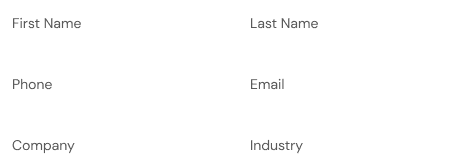Philippine Labor Guide
Remotify is your next-generation solution to growing your team remotely and cost-effectively in the Philippines. Through our Employer of Record services, we do the heavy lifting for you. We take care of local HR, compliance, attendance tracking, payroll, and reporting so you can focus on what is most important: growing your business.
We understand how complex it is to study and learn how local labor laws work in a different country. This is a quick guide of what you need to know when having a team in the Philippines and what we’ll simplify and take care of for you. We’ve got you covered.
Employment Contracts
Employers must provide employment contracts to their employees. Contracts should include:
-
Full name of the parties
-
Job position, description, and status
-
Type of employment
-
Pay rate
-
Benefits
It is important to include the rules, regulations, and limitations you want to set with your employees to make the contract comprehensive.
Compensation
In the Philippines, the minimum wage for employees is set by the Regional Tripartite Wages and Productivity Board. It may vary depending on the region where the company is incorporated or where the employee resides.
All employees are entitled by law to a 13th-month pay at the end of the year. Some companies provide additional Christmas bonuses or 14th to 16th-month pay.
Working Hours
The standard work period of Filipino employees is 40 hours over five days. The time exceeding the regular work period should have a corresponding overtime pay paid at percentages of the basic wage. It may also vary on weekends and paid holidays unless the employment contract says otherwise. Employees should also receive at least 24 hours of rest period after every six consecutive working days.
Evening shifts between 10 pm to 6 am have a corresponding night differential pay which is compensated at a percentage of basic salary. Employment of pregnant women and minors on overnight hours is prohibited.
Public Holidays
The Philippines observe the following holidays:
-
New Year’s Day
-
Maundy Thursday
-
Good Friday
-
Araw ng Kagitingan
-
Labor Day
-
Independence Day
-
National Heroes Day
-
Bonifacio Day
-
Christmas Day
-
Rizal Day
Employees can either not work or work on these holidays but with double compensation for the whole day. If an employee works overtime on holiday, it means that the overtime pay will also double up. Employees of higher rank may be considered as exempt employees and may be excluded from overtime pay and holiday pay, provided that they earn a leave in lieu of the holiday they worked.
Vacation Leave
Aside from the public holidays, employees are also entitled to at least five paid leaves after one year of service. Many companies however offer 15-25 days of paid leave as a benefit for their employees.
Sick Leave
It is not required to offer sick leave to employees in the Philippines, but many companies still give up to 10 days of sick leave to their employees.
Employees may also be eligible for benefits under the social security program of the Philippines if they:
-
made at least three months of contributions in the 12-month period preceding the six months period during which they became sick
-
are hospitalized or unable to work due to sickness for four days or more
-
can provide a medical certificate of their condition
Maternity / Paternity Leave
Female pregnant employees are entitled to 105 days of fully paid maternity leave and an additional 30 days unpaid leave as an optional leave for every pregnancy while employed. Single mothers are entitled to request up to 15 days of leave extension on top of the other optional extensions. Female pregnant employees may opt to use these days combining prenatal or postnatal maternity leave, so long as it is availed in a continuous and uninterrupted manner.
To be eligible for maternity benefit from the Social Security System (SSS), an employee must have paid at least 3 monthly SSS contributions in the 12 month period immediately preceding the semester of the birth, miscarriage or termination. An employee must also notify her employer of the pregnancy and expected date of birth. Notice shall be transmitted to the SSS in accordance with the rules and regulations it may provide. Women can transfer up to seven days of their maternity leave to their child’s father.
Employment Termination / Severance
An employment contract may be terminated at the end of the contract period (if for a fixed term), by the employer or by the employee.
Employers may terminate any employees under the probationary period (up to six months) due to performance issues or any just cause. The termination for regular employees may be due to just causes or authorized causes.
Just cause
-
Serious misconduct and willful disobedience
-
Gross and habitual neglect
-
Breach of Trust
-
Fraud
-
Commission of Crime
Authorized cause
-
Installation of labor-saving equipment
-
Redundancy
-
Reduction of cost to prevent losses
-
Sale or closure of the business
Employees terminated due to an authorized cause are entitled to a severance pay. Meanwhile, those who are dismissed due to just causes do not have the same right for this.
Health Insurance Benefits
The state provides compulsory universal healthcare for employees, and both employees and employers should fund it. Employers also typically offer private health insurance for their workers as an additional benefit.
Note that all this information is only updated upon the date of its publication, and certain things may change in the future. We also used the Philippine Labor Code as a guide for our content.
As your team’s employer of record, Remotify gives you legal insulation by taking care of all these complexities for you and give you back time to truly focus on what is important: growing your business.
Check out our service page to know more about outsourcing solutions we can provide.
